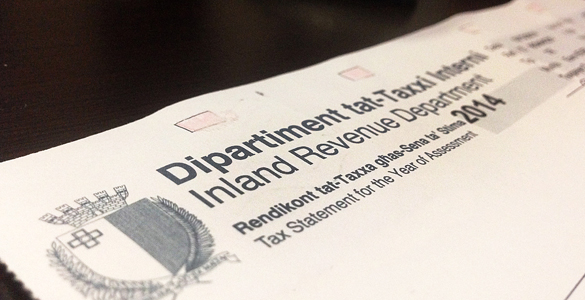The National Audit Office (NAO) on Monday (today) revealed that there were various instances hinting at a weakness in the payroll system of a number of Government entities, including the Ministry for Health and the Ministry for Education.
This came after Charles Deguara, Auditor General, presented the Annual Audit Report on the Public Accounts for 2022 to the Speaker of the House of Representatives Angelo Farrugia. It is made up of 26 audit reports on the operations of several public sector entities, as well as an analysis of the Financial Report 2022 and an overview of the Statements of Arrears of Revenue for the same year, as submitted to Treasury by the respective Ministry, department, or entity.
The NAO judiciously analysed the level of compliance of various expenditure and revenue items with prevailing rules and regulations. Within the report, there were over 250 relevant recommendations aimed at addressing the shortcomings identified during these reviews, thus promoting good governance and best practice in Government’s operations.
One of the main findings of the report was the presence of “weaknesses in the payroll system”, an issue found across different public sector entities.
The NAO revealed that this prompted the incorrect calculation of allowances and the regular use of overtime, which was “often unauthorised”.
One such case was found in Mental Health Services (MHS), an entity within the Ministry for Health which is primarily engaged in the operation of Mount Carmel Hospital, where allowances of staff were being calculated incorrectly, at times leading to “substantial overpayments”. Tests also established that officers were being paid extra for services rendered to third parties during normal working hours, the NAO stated. It was also revealed that management and personnel in charge of the payroll “were not fully knowledgeable” on the allowances being paid to MHS employees, how payments were to be calculated, and how these were to be effected.
This was also the case for the Ministry for Education, Sport, Youth, Research and Innovation, with the NAO finding that internal controls in the payroll process were weak, denoting “poor monitoring”. Additionally, there was also a “lack of coordination” between the Ministry, its back office in Gozo processing the salaries, and each respective school, resulting in “certain inaccurate salary computations”.
Similarly, there were also shortcomings in the Housing Authority’s approval of overtime for its employees. According to a collective agreement, overtime must be pre-approved by the authority’s management, yet this was not being done, and no reason for the overtime was being documented.
Aside from issues related to payroll, the NAO also identified limited internal controls and a lack of segregation of duties within various Government entities.
There was also a habitual bypassing of procurement regulations, particularly involving the “irregular use” of negotiated procedures, services rendered under expired contracts, and a lack of necessary approvals. In one case tied to the Ministry for Senior Citizens and Active Ageing, there were irregularities due to what the NAO dubbed as “inadequate planning”.
The audit office also found insufficient enforcement on amounts due to Government, as well as a lack of audit trail and Standard Operating Procedures.
The full report can be accessed through the NAO’s website by clicking here.
Featured Image:
National Audit Office / LinkedIn
Top 5% of taxpayers responsible for one-third of all income tax paid in Malta
On the other hand, the bottom third of income earners pay just 1.7% of all income tax generated
The Malta Institute of Accountants prepares for its 2024 Anti-Money Laundering Conference
Held at the Radisson Blu, St Julians, this latest AML Conference promises to bring exclusive insights on new procedures
Eurozone interest rates to remain unchanged
The European Central Bank noted that price pressures remain persistent






